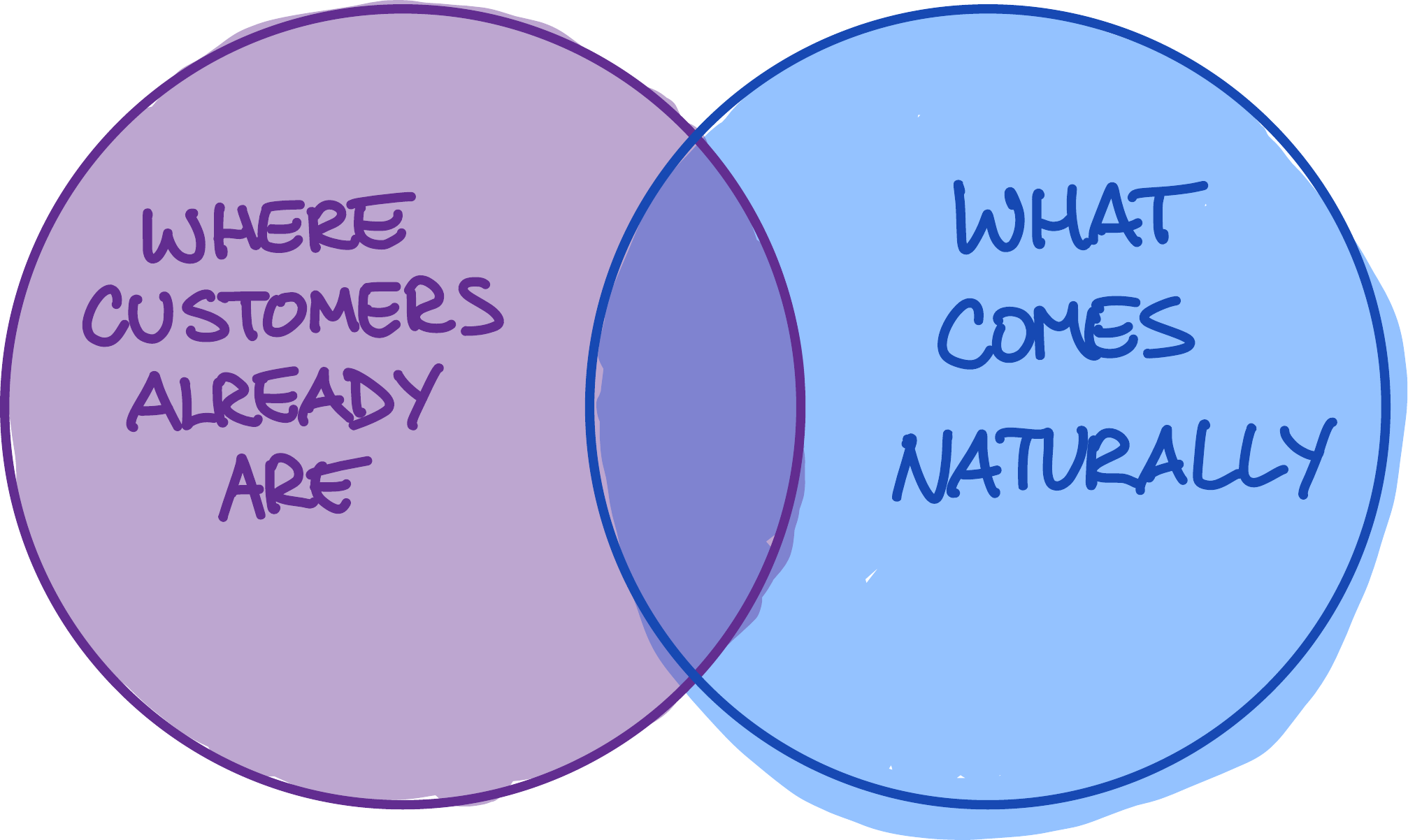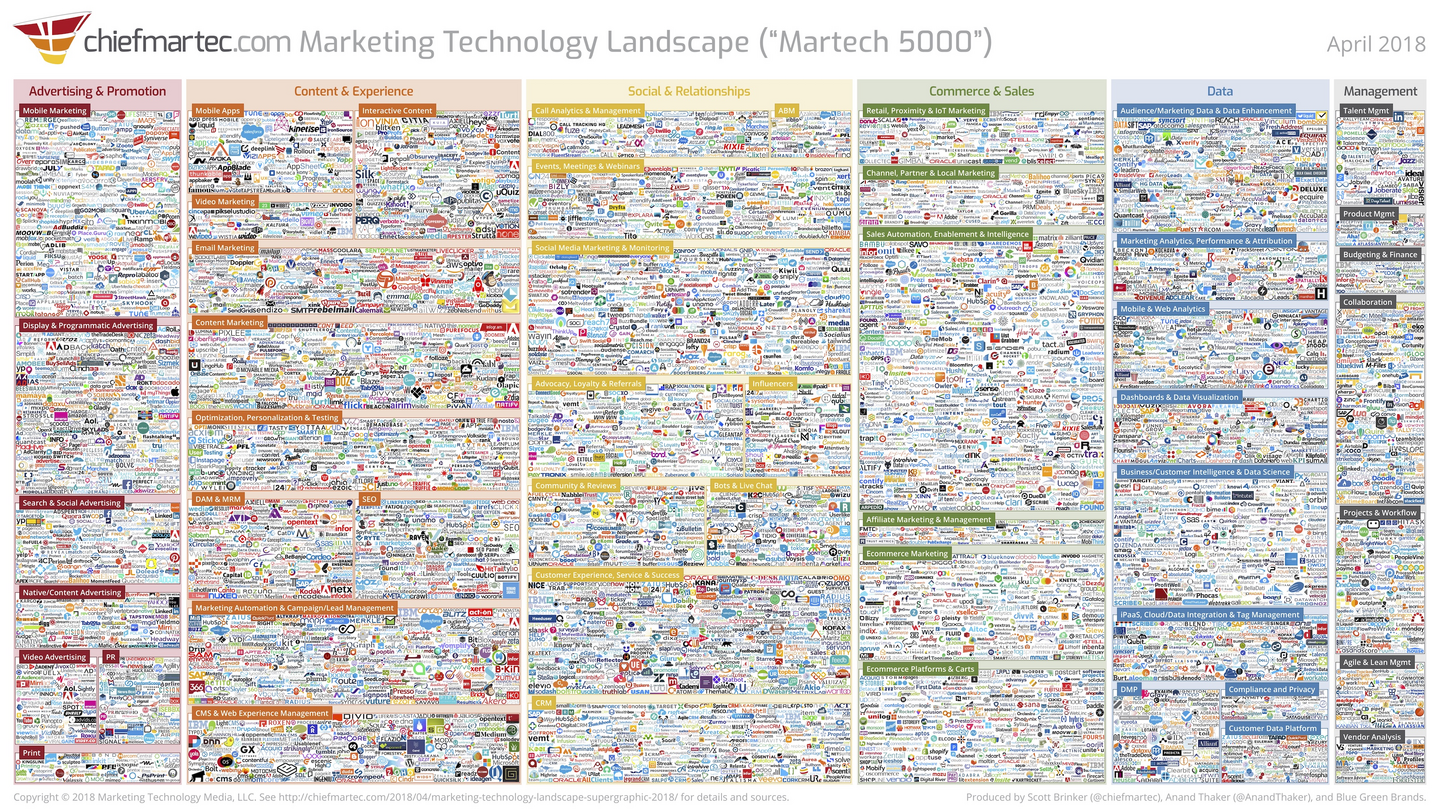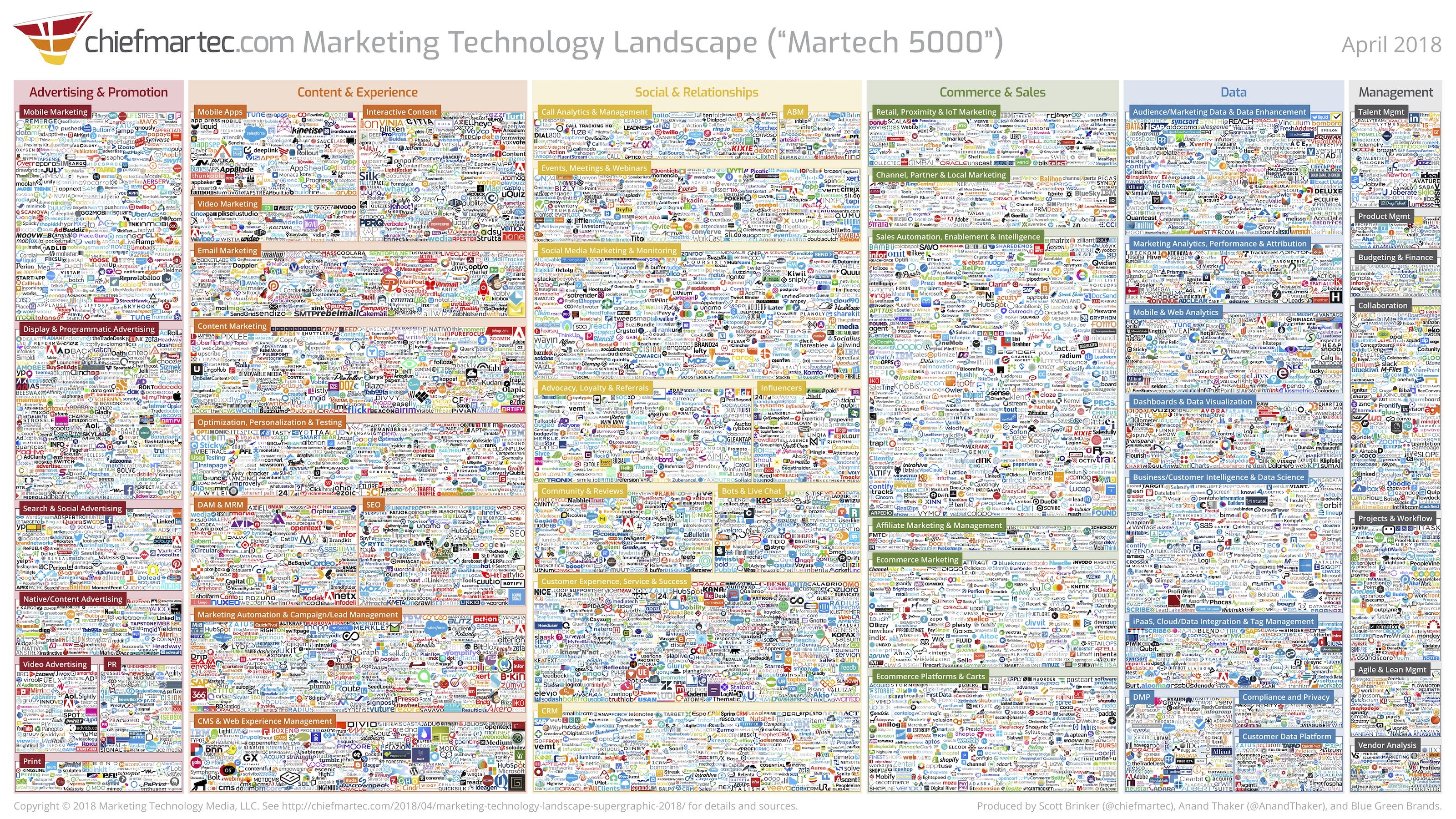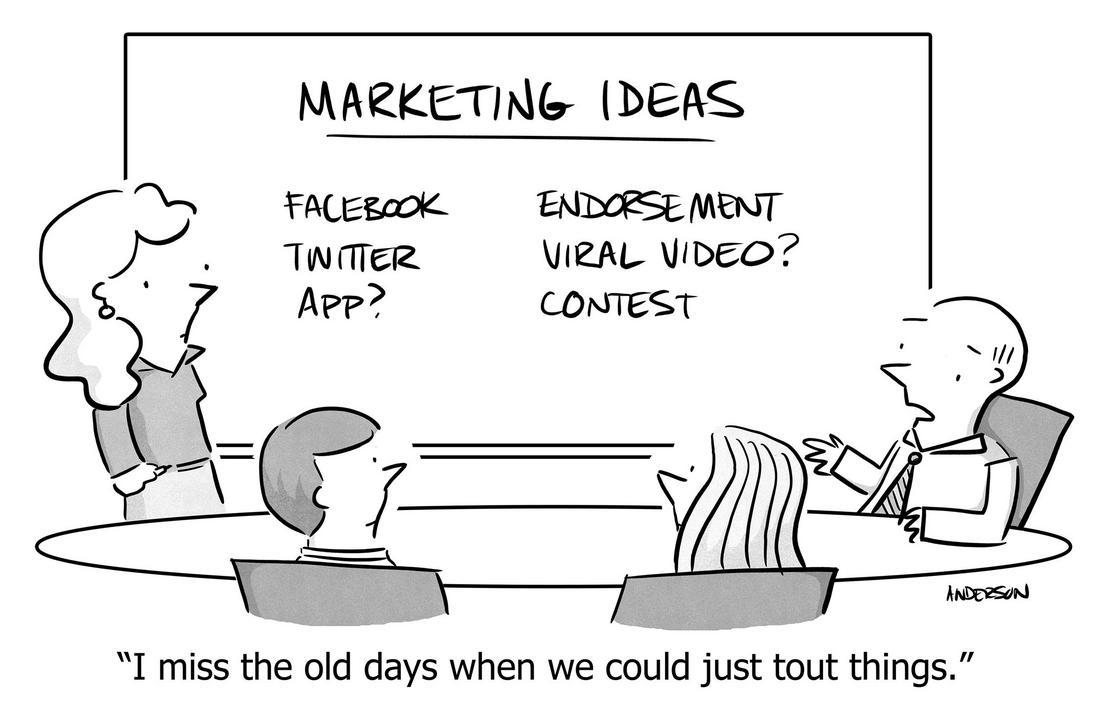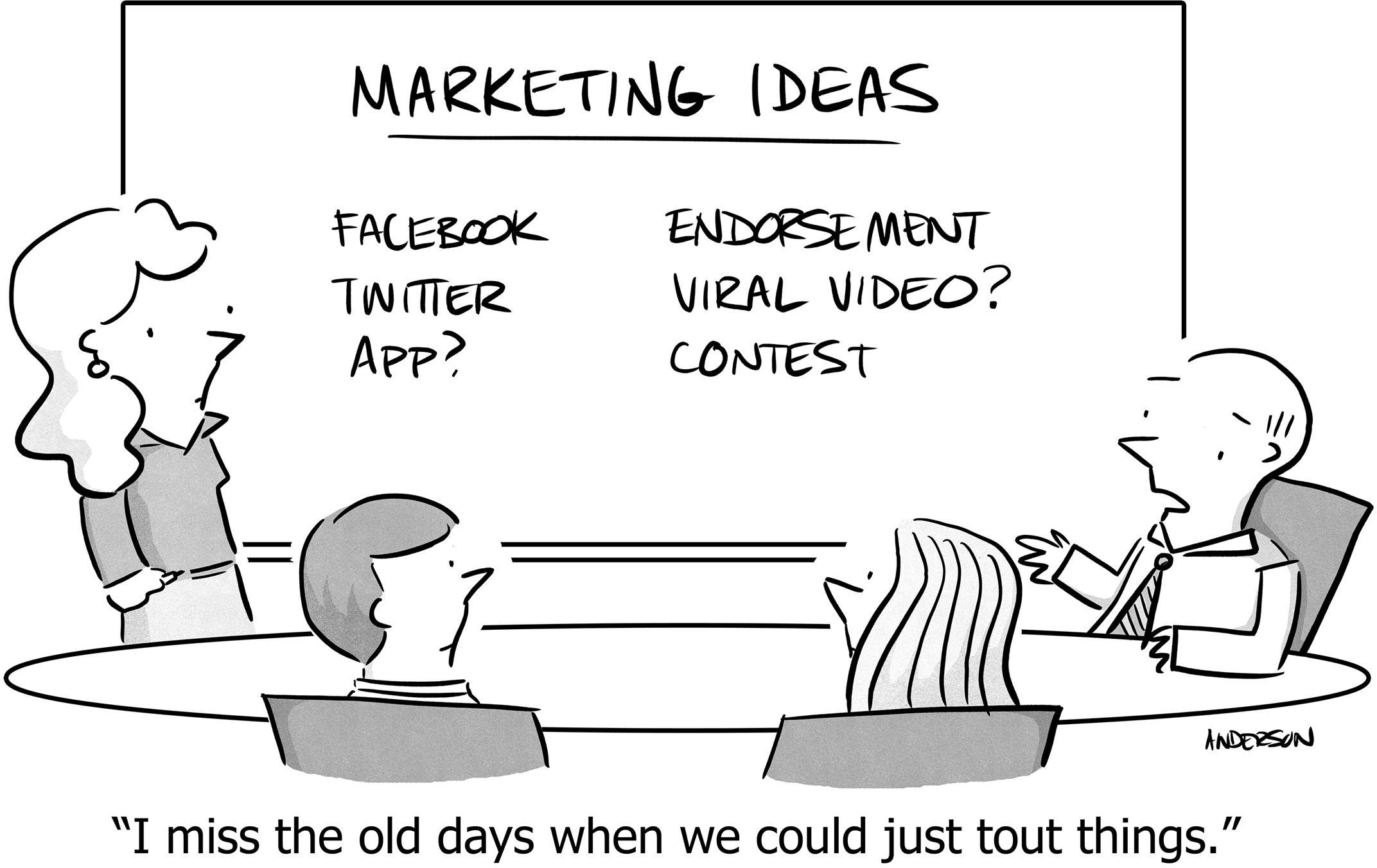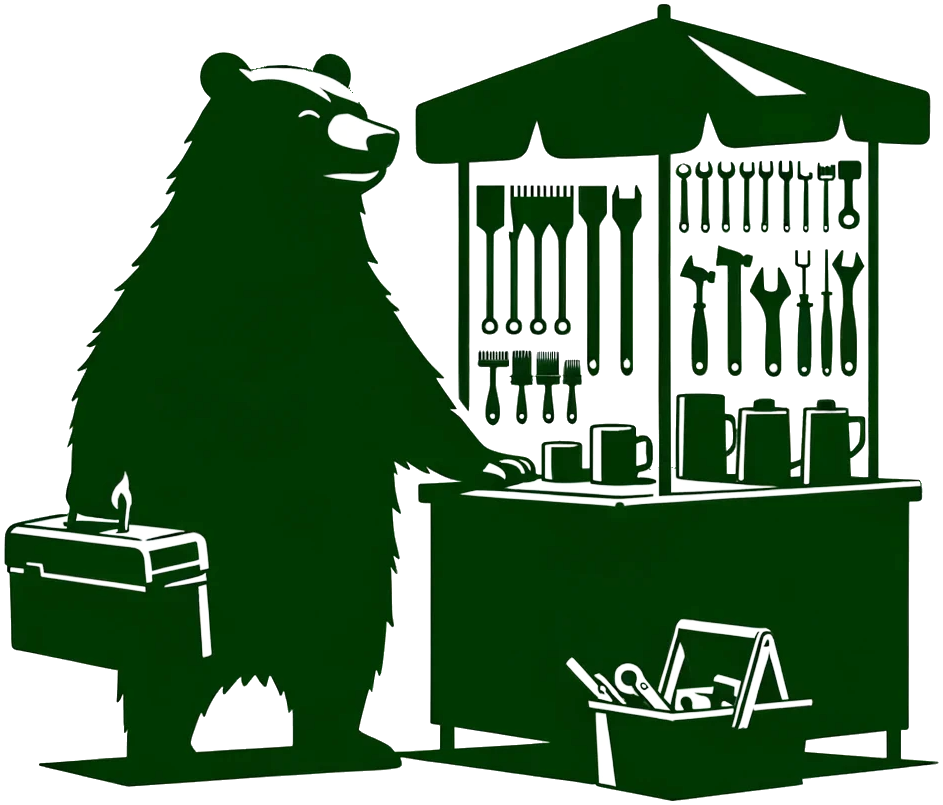How to select your first marketing channel
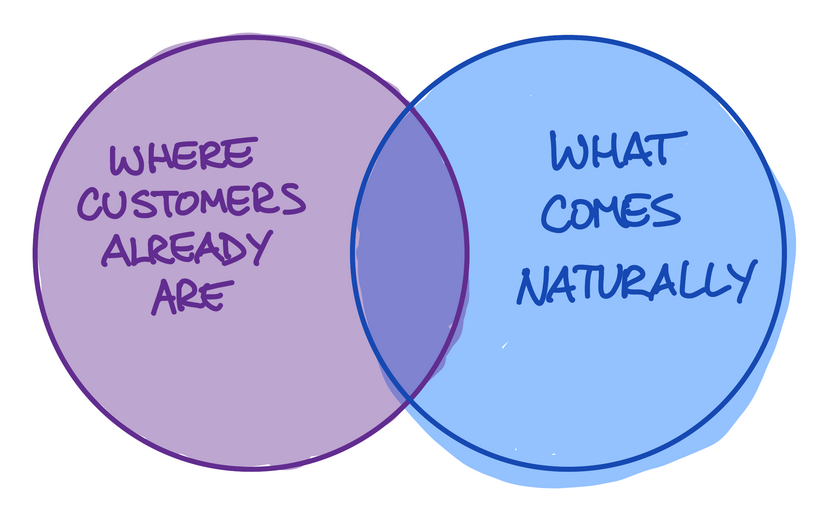
You’ve built a product, and it even works! Mostly! Now, how do you select your first marketing channel?
There are dozens to pick from, and hundreds of products and services to help you execute each one:
Figure 1: Scott Brinker’s Marketing Technology Landscape from 2018; that was the last year it was “small” enough to be displayed in this format.
But there aren’t dozens of marketing channels that make sense for you, right now. At the beginning you are beset by constraints of time, money, brand, reach, and specific knowledge about your customers. These constraints eliminate most channels as non-viable.
The bad news is: You have fewer options than you’d like. The good news is: You can leverage those same constraints to answer the question: Which marketing channel is right for me?
There are two primary constraints relevant to this question:
- Where your customers already are.
- What comes naturally to you.
1. Where your customers already are
You don’t control where your customers already go for industry news or to discover new software. You have to fish where the fish are.
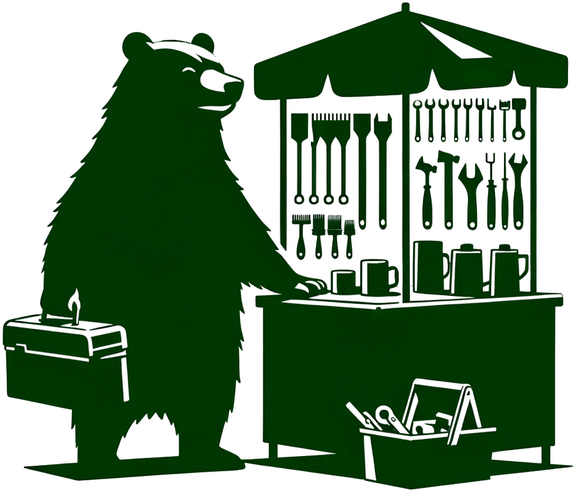
For example, if you’re selling accounting software, most of your customers will be on LinkedIn, some on Twitter, occasionally on Threads, maybe Facebook if it’s for, let us say, a more mature connoisseur. But not Pinterest, not Snapchat, and not TikTok. Besides social channels, which keywords do they search for when they encounter the problem that you solve? Which podcasts do they listen to? Which YouTube channels do they subscribe to? Which consultants do they already pay to solve problems like these? (The answers to some of these will be “none”.)
On the other hand, if you’re selling all-natural fair-trade miniature-alpaca yarn to weavers, they might be on Facebook, Pinterest, and possibly Threads.1 There might be weaving clubs that would be better targets than selling directly to consumers. There might be magazines (even in print!) and certainly some popular influencers.
Because you don’t control this, it is a constraint. You have to go where customers are already engaged.
1 I don’t make the rules, I only make the puns.
2. What comes naturally to you
This sounds self-indulgent, contrary to typical business advice. Aren’t you supposed to get out of your comfort zone, learn new skills, dive into new media, and become an “expert” in three months through a crucible of a hundred intense hours of coursework and enabling software?

No. Doing something unnatural, that you despise, will fail. Think about the social network you do like. You instantly notice impostors—people who don’t understand the medium, ham-handedly exploiting it for selfish marketing. It’s awkward, it gets no engagement, and in fact you might not even see it as the algorithm silently buries their posts.
Plus, you’re going to hate using a social media platform that you disdain. Taking myself as an example: I don’t understand Pinterest. I don’t understand collecting pictures on boards, I don’t understand what happens with boards, I don’t understand how you share things, I’m not even sure it’s called a “board” and I don’t care what it’s actually called. If I tried to do it, not only would I be bad at it, I would hate doing it. My disdain would leak onto the page, making the whole effort even less effective. Ineffective and unhappy—is this why you started a company?
So, take stock of your Pivot Points, and consider only those marketing options that you’re naturally good at, or genuinely wish to become great at; you will select your first marketing channel from that subset.
But what if…
So we’ve come to the obvious-in-hindsight conclusion that you should operate at the intersection of where the customers already are, and what comes to you naturally and joyfully. With practice, you’ll move from being good to being great, which was unlikely to happen had you selected a channel that wasn’t a good fit.
This is smart even if your chosen channel is low-volume. Suppose there’s a small-but-vocal community on Threads, but you know that most of your customers are on LinkedIn. But you don’t understand LinkedIn—it all looks like AI to you, you don’t understand why anyone would read it, it all seems fake, you just can’t get your head around it. It is better to be one of the top three creators on this topic on Threads than to be the 200th biggest creator on LinkedIn, even though LinkedIn has many more people. Algorithms don’t like promoting the 200th-biggest thing; they do like promoting the 3rd-biggest thing. And you can be 10x or 100x more effective in your messaging. So even though you’re talking to a smaller audience, you can be successful.
And then, once you become powerful on one medium, you can expand to others. With a foothold on Threads, and revenue that can pay for consulting or tools or hiring a part-time marketer, you can repurpose your content from Threads but in the style of LinkedIn. Now you’re expanding into a second marketing channel from a position of strength.
Another possibility is that the Venn diagram intersection is empty—your customers are only on Facebook and you absolutely despise Facebook with every fiber of your being. What do you do?
One conclusion is that this is the wrong business for you. You just said that you’re so different from your customers that you can’t relate to them. Perhaps that means you’re not the right person to run this business. The business might be great, just for somebody else, not for you.

Another possibility is you need to partner with someone for whom this particular marketing channel is their superpower. Someone who’s an absolute wizard at Facebook, accomplishing things everyone else says are impossible. What takes other people a year, they complete in a month. What takes other people two months, they did last weekend. Since you’ve stipulated this is the most important channel, and that you’re going to be terrible at it, consider how powerful it would be if you focused on the areas of the business that are your superpowers, while this other person hauls in new customers every day. This could be exactly the team that maximizes the chance that this company is really going to work.
In any case, you want to pick one marketing channel and go deep. Not spread yourself over several channels, none of which work well.
Notice that in all these cases, the answer isn’t for you to force yourself to figure out Facebook. Of course you could. This is your life, this is your company, this is your idea; you can do whatever you want.
You’re just adding even more risk to a venture that’s already very risky, and that’s not the right way to solve the equation.
https://longform.asmartbear.com/first-marketing-channel/
© 2007-2026 Jason Cohen
 @asmartbear
@asmartbear ePub (Kindle)
ePub (Kindle)
 Printable PDF
Printable PDF
